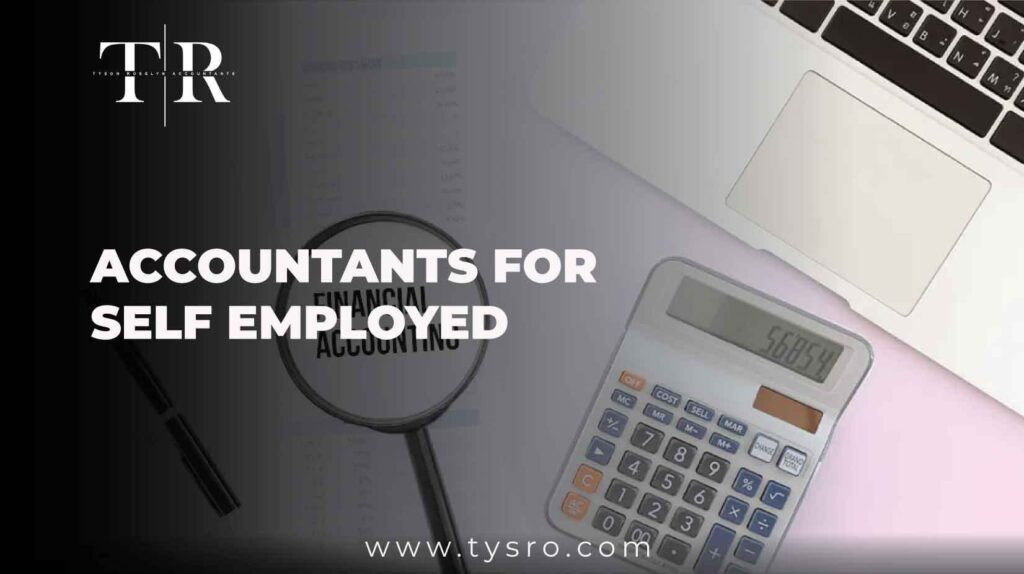Introduction
In the UK, being self-employed can be both exciting and challenging. From managing your schedule to navigating the complexities of taxes, there’s a lot to handle. One crucial element that can significantly ease your burden is finding the right accountant. But why exactly is it so important to have an accountant when you’re self-employed, and how can you choose the best one for your needs? This article will guide you through everything you need to know about Accountants for Self Employed individuals in the UK.
Why Do Need Accountants for Self Employed?
When you’re Accountants for Self Employed, you’re responsible for all aspects of your business, from day-to-day operations to financial management. While this autonomy is empowering, it also comes with a range of responsibilities that can be overwhelming. This is where an accountant comes in. Here are some key reasons why having an accountant is beneficial:
- Tax Compliance: Navigating the UK tax system can be complex, especially with frequent changes in tax laws. An accountant ensures that you comply with all regulations and deadlines, minimizing the risk of penalties.
- Financial Planning: Accountants provide valuable advice on financial planning and budgeting. They help you make informed decisions about investments, savings, and expenditures.
- Time-Saving: Managing your finances takes time. By outsourcing this task to a professional, you free up time to focus on growing your business.
- Stress Reduction: Handling your finances can be stressful. Having an accountant can alleviate this stress, knowing that your finances are in expert hands.
- Maximizing Deductions: Accountants are skilled at identifying potential tax deductions and credits that you might not be aware of, helping you save money.
How to Choose the Right Accountant for Self-Employed Individuals
Choosing the right accountant is crucial for your self-employment journey. Here’s a step-by-step guide to help you make the best choice:
1. Identify Your Needs
Before you start searching for an accountant, it’s essential to understand what services you need. Are you looking for someone to handle your tax returns, or do you need comprehensive financial planning? Knowing your requirements will help you narrow down your options.
2. Check Qualifications
In the UK, accountants should be certified by a recognized body, such as ICAEW, ACCA, or CIMA. Ensure that the accountant you choose has the necessary qualifications and is a member of one of these organizations.
3. Consider Specialization
Some accountants specialize in specific industries or types of clients. For self-employed individuals, it’s beneficial to choose an accountant with experience in dealing with similar clients. They will be more familiar with the unique challenges and opportunities you face.
4. Review Experience and Reputation
Look for an accountant with a proven track record of working with self-employed individuals. Read reviews, ask for references, and check their previous work to gauge their experience and reputation.
5. Evaluate Communication and Accessibility
Effective communication is key to a successful working relationship. Ensure that the accountant is approachable, responsive, and available when you need them.
6. Compare Fees
Accountant fees can vary significantly. It’s important to compare the fees of different accountants and understand what services are included. Choose an accountant who offers a transparent pricing structure and fits your budget.
Benefits of Hiring Accountants for Self Employed Individuals
To illustrate the benefits of hiring an accountant, let me share a story from one of my clients, Jane, a freelance graphic designer. Jane initially managed her finances on her own, but she found it overwhelming to keep track of invoices, expenses, and tax deadlines. After hiring an accountant, she experienced a significant stress reduction. Her accountant helped her streamline her financial processes, ensured timely tax submissions, and even identified deductions she hadn’t known about. Jane’s business grew as she could focus more on her craft rather than worrying about financial details.
The Accounting Process for Self-Employed Individuals
Here’s a step-by-step guide to the accounting process you might expect as a self-employed individual:
1. Initial Consultation
During your first meeting with an accountant, you’ll discuss your business, financial situation, and specific needs. This is the time to set expectations and clarify how they will assist you.
2. Financial Records Setup
Your accountant will help set up a system for managing your financial records. This may include setting up accounting software, organizing your receipts, and establishing a record-keeping routine.
3. Ongoing Financial Management
Regularly, your accountant will review your financial records, ensure that all transactions are accurately recorded, and provide advice on financial matters. They will also prepare your annual financial statements and tax returns.
4. Tax Filing and Compliance
Your accountant will handle all aspects of tax filing, including preparing and submitting your tax returns, ensuring compliance with tax laws, and addressing any issues that arise with HMRC.
5. Regular Reviews and Updates
Regular meetings with your accountant will help you stay on top of your financial situation. They will provide updates on any changes in tax laws or financial strategies that may impact your business.
Choosing the Right Accountant for Your Business
When selecting an accountant, consider the following tips:
- Personal Fit: Choose someone you feel comfortable working with. A good rapport can make a big difference in the effectiveness of your working relationship.
- Expertise: Look for an accountant with experience relevant to your business needs. Their expertise can provide you with tailored advice and solutions.
- Technology: Ensure that the accountant uses up-to-date technology and accounting software to efficiently manage your finances.
Conclusion: Accountants for Self Employed
Finding the right accountant can be a game-changer for self-employed individuals in the UK. An accountant not only helps you navigate the complexities of tax laws but also offers valuable financial advice and peace of mind. By following the steps outlined in this guide, you can make an informed decision and choose an accountant who will contribute to the success of your business.


